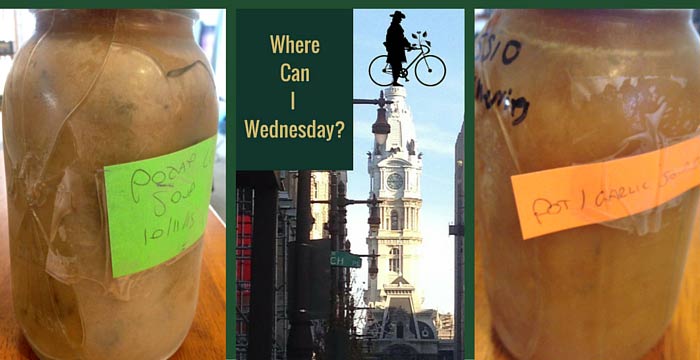
What should I do with broken mason jars in the freezer? Recycle or trash?
You have too many veggies, so you make soup for later. Then you freeze it in a non-hazardous, non-BPA mason jar…
Then a week later, you open your freezer… and the jar is cracked. OOF! What’s a green gal or guy to do?! This is a situation that calls for… Where Can I Wednesday!
What should I do with broken mason jars in the freezer?
First and foremost, don’t try to savage the soup or broth. Glass can break into tiny pieces, and it’s not worth feeding a loved one (or yourself!) a mason-jar-roulette meal.
Unfortunately, your frozen jar is likely shattered, and therefore you’ll have to throw out the broken glass in your trashcan. However, glass is typically recycled via the single-stream method used in Philadelphia. So a whole (or let’s say, mason jar broken into 2 clean pieces) could be recycled.
Here’s why, with an explanation from Philadelphia Recycling Director Phil Bresee:
“Small pieces of glass can’t easily be picked up by the optical scanners at the MRF, so they may just take a ride to the residue line and get disposed of anyway. The other issue with shattered glass is that if bin contents are spilled onto street by accident during collection, it will create more of a mess.”
(AKA broken glass will end up on your street instead.)
Who knew broken mason jars could be so complicated?









